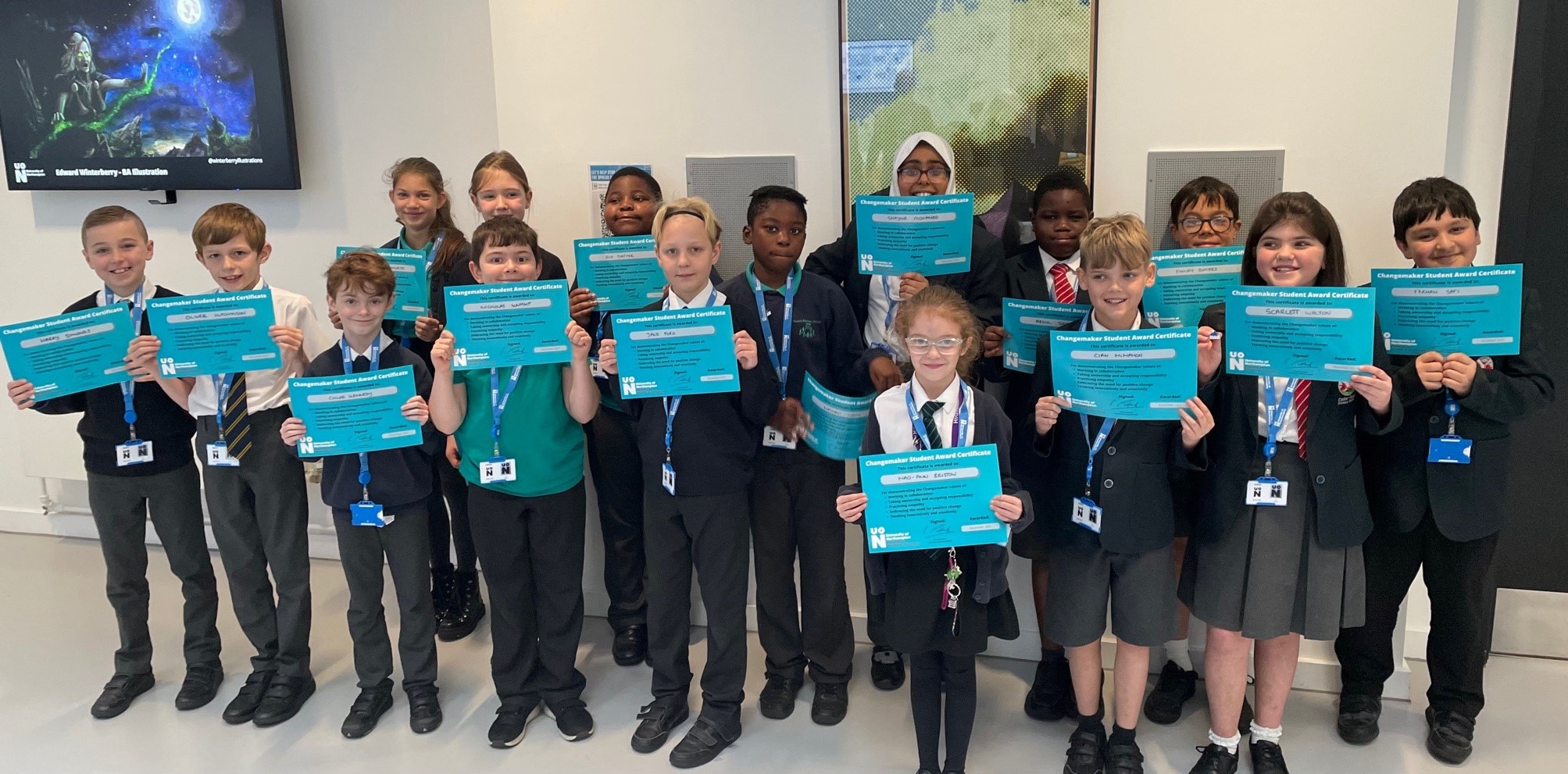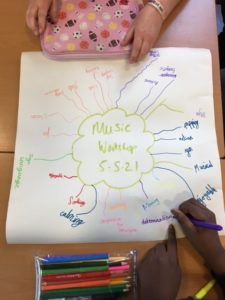Prizes and praise for UON’s youngest ‘researchers’
Date 5.11.2021
5.11.2021
University of Northampton (UON) researchers looking into the wellbeing of children have been given some novel assistance – local primary school children.
UON academics worked alongside the school students who had taken part in ‘Music for Wellbeing’ sessions run by the Northamptonshire Music and Performing Arts Trust (NMPAT).
Together, they explored the effect these workshops had on the way the children – from Castle Academy, Cedar Road Academy, and Higham Ferrers Junior School – felt and co-created an evaluation tool to help them reflect on the impact of the workshops.

Creating a wellbeing mind map.
The researchers used pictures, photographs, maps and raps created by the children to draw some initial conclusions in this pilot study, which enabled the research team to successfully bid for the University’s Institute for Learning and Teaching funding and continue their research.
The next step in the project will see the team regroup with the children after Christmas to develop their findings and suggestions for the evaluation tool, perhaps as a game, graph, or app. One exciting aspect of the project is that schools will recruit undergraduate designers from the University next year, who will join the research teams for each school and be directed by the children to help create the tools to measure wellbeing.
To applaud their fledgling academic input, the youngest UON researchers’ work was recognised with an awards event on campus.
The celebration was led by UON academics Korrin Smith-Whitehouse, Helen Tiplady, and Steve Hollingshurst and organised by the University’s Schools Engagement team. Each student was presented with a Changemaker Student Award and had the chance to look around the University.
The event also included an NMPAT-led ‘body percussion’ workshop. The children, their teachers, and UON academics used stomping, clapping, slapping, and singing to explore using the body as a percussive and vocal instrument.
Korrin Smith-Whitehouse, Senior Lecturer in Special Educational Needs and Inclusion, led the research team. She said: “This project was very much about placing children at the centre of research and to help them become the leaders in research about their own lives.
“We are in the early stages of this but having their insight so far has been truly invaluable; their ideas have been fantastic and have blown our minds. Many thanks from all of the research team to all of our ‘primary researcher’ stars.”